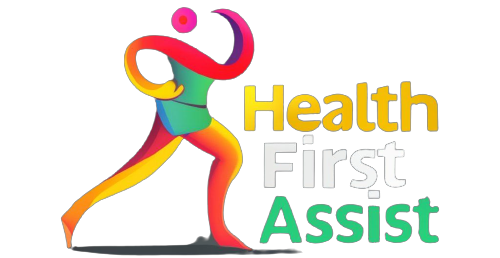Managing Anxiety: A Guide to Keep Calm in Anxious Times
Anxiety is one of the most common mental health issues, with over 40 million American adults experiencing an anxiety disorder each year. While occasional anxiety is a normal part of life, living with chronic anxiety can greatly reduce one’s quality of life. The good news is that there are many effective strategies for managing anxiety symptoms and build resilience.
As a psychologist who has worked with hundreds of patients with anxiety, I’ve found that a combination of lifestyle changes, therapy techniques, and medications (when needed) can make an enormous difference. With some trial and error, most people can find an approach that significantly improves their ability to cope. Here’s an overview of evidence-based tips for taking on anxiety.
Understanding Anxiety
Before diving into strategies for managing anxiety, it’s helpful to understand what’s happening in the anxious brain and body.
At its core, anxiety stems from the activation of your body’s natural “fight or flight” response, leading to a cascade of physical reactions. When you perceive a threat, your amygdala (the brain’s emotional center) sends a distress signal to the hypothalamus, which communicates with the rest of the body through the nervous system. This stimulates the release of stress hormones like cortisol and adrenaline.
Your heart rate accelerates, muscles tense up, breathing becomes rapid and shallow, and senses heighten. While this reaction would be useful if facing immediate physical danger, chronic or excessive anxiety activates these responses in everyday situations where they aren’t needed.
Understand that anxiety is adaptive in small doses, but too much creates dysfunction. The goal is to manage it so you can remain active without being overwhelmed. – Johanna Ward, licensed therapist
Lifestyle Approaches on Managing Anxiety
Making certain lifestyle adjustments can lower overall anxiety levels and help prevent anxiety spikes throughout the day. Here are some research-backed tips:
- Get moving – Aerobic exercise releases endorphins, Neurochemicals that enhance mood and reduce stress hormones. Aim for 30+ minutes of activity most days. Hiking and walking outside provides additional anxiety-lowering benefits. Consider joining a running group or recreational sports league in your area.
- Prioritize restful sleep – Not getting enough sleep worsens anxiety, while adequate sleep enhances emotional regulation. Establish a relaxing pre-bedtime routine, limit screen time before bed, avoid caffeine in the afternoons/evenings, and use a white noise machine or app if needed. Turning down thermostats to 65-68°F facilitates deeper sleep.
- Reduce stimulant intake – Beverages with caffeine and high-sugar drinks can increase anxiety symptoms. Limit coffee, tea, soda, and energy drinks to 1-2 servings daily – avoid them entirely in the afternoons and evenings.
- Eat a balanced diet – Keep blood sugar stable and supply brain-supporting nutrients by eating smaller meals every 3-4 hours. Emphasize complex carbs, protein, and healthy fats. Stay hydrated with water and herbal tea. Avoid skipping meals and limit alcohol, which can worsen anxiety.
- Try stress-reducing activities – Carve out time for relaxation practices like deep breathing, meditation, yoga, massage, art, or music. Creative pastimes help divert worries and entering a state of flow enhances mood. Spending time outdoors, especially around nature, can also ease anxiety.
- Connect socially – Loneliness and isolation tend to exacerbate anxiety, while social connection boosts resilience. Meet up regularly with supportive family and friends, join a club or group, enroll in a class, or volunteer. Sharing feelings and challenges with loved ones reduces bottled-up stress.
The goal in managing anxiety isn’t to eliminate it (which isn’t realistic) but to increase the capacity to cope with and contain anxiety-provoking thoughts and emotions. – Judith Orloff, MD, psychiatrist and author of The Empath’s Survival Guide
Therapy Techniques on Managing Anxiety
Seeking help from a mental health professional can be invaluable when dealing with anxiety. Through counseling and psychotherapy, you can gain coping skills, get to the root of worries, shift unhelpful thought patterns, and improve your ability to manage anxiety symptoms.
Here are some of the most effective therapeutic approaches for anxiety:
- Cognitive-behavioral therapy (CBT) helps identify distorted thought patterns that fuel anxiety and replace them with more realistic, adaptive thoughts. Common techniques include challenging automatic negative thoughts, modifying catastrophic thinking, and decatastrophizing “what if” scenarios.
- Exposure therapy progressively faces anxiety-inducing situations in a controlled, safe manner to desensitize fears and build confidence. Starting small, you systematically confront anxiety triggers like public speaking, social situations, or heights through role-playing, visualization, and real-life practice.
- Acceptance and commitment therapy (ACT) uses mindfulness, acceptance, and values-based action to foster psychological flexibility. Instead of avoiding anxiety, you openly acknowledge it without judgment before refocusing on what matters most to you.
- Stress management education teaches practical skills for coping with anxiety-provoking situations, managing worry, and preventing anxiety from spiraling out of control. This may involve relaxation training, assertiveness skills, time management, and problem-solving strategies.
- Interpersonal therapy identifies and resolves relationship conflicts that may underlie or exacerbate anxiety. Improving communication and social support through individual or group therapy can reduce loneliness and anxiety.
- Brain Training App exercises attention, memory, problem-solving, and emotional regulation – cognitive skills involved in managing anxiety. Just 10-15 minutes per day can yield noticeable improvements within 2 weeks.
Anxiety thrives off avoidance. It’s counterintuitive, but facing feared situations in small, controlled doses can help retrain the brain to realize these scenarios are manageable, not dangerous. – Chloe Carmichael, PhD, psychologist
Medication Options
For people with severe anxiety or who haven’t found relief from lifestyle changes and therapy alone, medication may be recommended. These are some of the most common drug treatments for anxiety:
- SSRIs like Zoloft, Lexapro, Prozac, and Paxil dampen anxiety symptoms and help prevent panic attacks by increasing serotonin. They take 4-6 weeks to become fully effective.
- SNRIs such as Effexor and Cymbalta also boost serotonin while blocking norepinephrine reuptake. This dual action enhances their effects on anxiety.
- Benzodiazepines like Xanax, Klonopin, and Ativan directly reduce excitatory nerve activity. While fast-acting, they have a higher addiction risk and are usually taken short-term.
- Beta blockers such as Inderal and Lopressor block the effects of adrenaline, slowing heart rate and easing shakiness. They quickly relieve physical anxiety symptoms.
- Buspirone relieves anxiety without sedation or risk of addiction. It takes 2-4 weeks to work.
- Online Therapy Provider offers access to licensed therapists through phone, video, chat, and messaging. Plans are customized, convenient, and more affordable than traditional therapy. The first week is free to try it out.
When prescribed judiciously, anxiety medications can provide rapid, temporary relief of severe symptoms while you work to understand the root causes through counseling. Though drugs help manage anxiety, they aren’t a cure. The coping skills you learn in therapy will enable you to thrive in the long run.
For chronic anxiety, cognitive-behavioral therapy helps develop empowering thought patterns to counter the underlying sense of helplessness. Anti-anxiety medications may provide initial relief while CBT builds long-term resilience. – Karen Cassiday, PhD, director of the Anxiety Treatment Center of Greater Chicago
Create an Anxiety Toolkit
It can be invaluable to assemble various go-to tools and techniques for defusing anxiety when it strikes unexpectedly. This anxiety toolkit may include:
- Soothing items – Fidget toys, squishy stress balls, aroma patches, and “worry stones” provide sensory distraction and comfort through touch.
- Relaxation exercises – Print out guides on deep breathing, progressive muscle relaxation, and grounding techniques to practice when anxious. Apps like Calmprovide guided meditations.
- Uplifting media – Make playlists of your favorite soothing songs, inspirational talks or comedy clips to quickly shift your mindset when anxiety spikes.
- Supportive contacts – Keep a list of people you can call, text or video chat with when needing some social soothing. Reaching out curbs isolation.
- Having portable go-to anxiety aids makes it easier to rapidly deploy coping strategies wherever you are. Keep tools handy at home, work, and in your bag when on the go.
When to Seek Emergency Help
While anxiety rarely escalates to life-threatening levels, certain symptoms warrant urgent medical care, including:
- Chest pain
- Rapid, irregular heart rate
- Fainting or dizziness
- Shortness of breath
- Feeling detached from reality
- Nausea, vomiting or abdominal pain
- Suicidal thoughts
Seek emergency psychiatric treatment or call 911 if anxiety progresses to these dangerous levels or you feel unable to keep yourself safe. Severe panic attacks may require medications to rapidly restore normal vital signs.
With the right mix of lifestyle changes, therapy techniques, self-care practices, and social support, most people can successfully manage anxiety symptoms and dramatically improve their quality of life. While the road isn’t always smooth, a combination of patience, compassion for yourself, professional treatment, and daily tools to diffuse worries can guide you through anxious times.
Establishing regular exercise, sleep, meditation and social connection practices strengthens neural pathways associated with regulation of emotion and stress response. This reduces reactivity to anxiety triggers. – Martin Antony, PhD, author of The Anti-Anxiety Workbook
Key Takeaways on Managing Anxiety
Occasional anxiety is normal, but living with chronic, excessive anxiety can significantly impact quality of life. Effective treatments are available.
- Understanding your anxiety patterns and identifying contributing lifestyle factors helps guide management strategies.
- Research shows regular exercise, restorative sleep, a balanced diet, social connection, stress management skills, therapy and medication (if needed) can substantially improve anxiety.
- Assembling a personalized anxiety toolkit with comforting items, relaxation exercises, uplifting media, and supportive contacts makes it easier to cope in the moment.
- Seek emergency medical care if anxiety reaches dangerous levels with symptoms like chest pain, trouble breathing, feeling detached from reality, or suicidal thoughts.
- With professional support, daily lifestyle tweaks, and go-to coping tools, most people can successfully manage anxiety levels and feel more resilient and empowered. There are many reasons to feel hopeful.
References
- ADAA – Tips to Manage Anxiety and Stress
- HelpGuide – Anxiety Disorders and Anxiety Attacks
- Mayo Clinic – Anxiety Disorders
Related Topics
- Healthy Hydration: How Much Water Should I Drink a Day for Optimal Well-being?
- Keratosis Pilaris: Unraveling the Mysteries of “Chicken Skin”
- Low Blood Potassium (Hypokalaemia): Causes, Symptoms, and Treatment
- Intuitive Eating: The Sustainable Path to Weight Management
- Psychosis and Psychotic Disorders: A Comprehensive Guide
Cardio FLEX Reviews: Unveiling the Truth about Cardiovascular Health Support
Cortexi Reviews – Unveiling the Power of the Ultimate Nootropic Formula
Gluconite Review – A Comprehensive Analysis of Safety and Effectiveness
Ikaria Lean Belly Juice Reviews – The Ultimate Weight Loss Solution
Java Burn Reviews: A Revolutionary Approach to Boosting Metabolism
Liv Pure Reviews: to Achieve Your Weight Loss Goals
ProDentim Reviews: Solution for Dental and Gum Problems
Puravive Reviews: A Detailed Analysis of Discovering the Essence
Quietum Plus Reviews: Unlocking the Secrets to Optimal Ear Health and Clear Hearing
Sugar Defender Reviews: The Importance of Blood Sugar Management
Sumatra Slim Belly Tonic Reviews: Discover its Power for Healthy Weight Loss


[…] Managing Anxiety: A Guide to Keep Calm in Anxious Times […]
[…] Managing Anxiety: A Guide to Keep Calm in Anxious Times […]